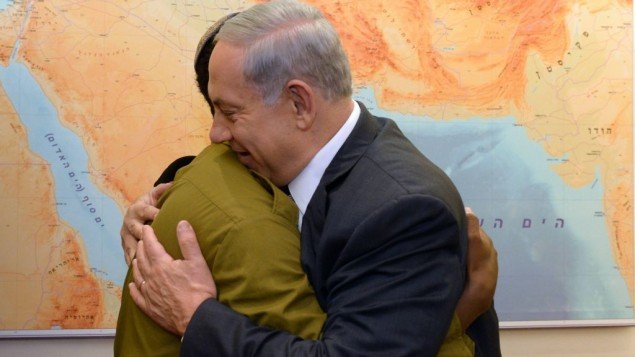THE TIMES OF ISRAEL
BY STUART WINER
Protest leaders say charges against those arrested at demonstration should be dropped, ask for improvements in housing, education
The leaders of a protest movement alleging systemic discrimination against the Ethiopian-Israeli community demanded on Sunday that the government improve education and housing, and set up ministerial committees to address Ethiopian needs. They also demanded that charges against community members arrested at a recent riot in Tel Aviv be dropped.
At a press conference in Tel Aviv, a panel of activist leaders expressed their frustration with what they said was the government’s shortcomings in addressing the quality of life of the Ethiopian-Israeli community.
“The decision makers neglected the Ethiopian community and ignored the harsh realities, in which an entire generation feels that it is not part of society and has no place in it,” said Inbar Bugale, one of the leaders of the movement, reading from a prepared statement.
Members of the Ethiopian-Israeli community say they are protesting years of institutional racism and discrimination, as well as ongoing police brutality. The release of a video showing police beating an Ethiopian-born soldier, apparently unprovoked, sparked the protests last month.
The activists stated Sunday that not only was the national government to blame for the situation, but also the local authorities. They called for greater monitoring to ensure that the Ethiopian community is not marginalized.
“There should be no discrimination toward the community. They should treat us like every other citizen,” Bugale said.
Bugale rejected Prime Minister Benjamin Netanyahu’s call last week for the establishment of a ministerial committee to assess the situation of the Ethiopian community and claimed that three years ago, Netanyahu had publicly declared that “there is no place in Israel for racism.
“We will not give up just because of Netanyahu’s announcement to set up a ministerial committee; we have already heard that from the prime minister,” she related. “Then, just as today, he promised to root out racism; then, too, he promised to fight it.”
Bugale claimed that Netanyahu has not followed through on his call for a committee. “To this moment, Netanyahu has not sent, in writing, a declaration to set up the ministerial committee. We are fed up with baseless promises. If the prime minister wants us to take it seriously, then each government ministry should set up a public committee that has 50% representation of ethnic Ethiopians.”
Bugale also criticized Netanyahu’s meeting with Damas Pakada, an Ethiopian soldier in the Israel Defense Forces who was seen in the video being beaten by two policeman in an apparently unprovoked attack.
“The prime minister responded with great hypocrisy when he hugged the soldier Damas Pakada,” she asserted. “We call on him to leave the ivory tower of the Prime Minister’s Office and come to our neighborhoods, down in the streets.”
The activists demanded that the policeman who led the attack on Pakada be brought to trial immediately. Days after the incident, Israel Police Commissioner Yohanan Danino declared that the officer — who has been suspended — was to be expelled from the force, pending a hearing on Monday.
Another policeman seen in the video was a volunteer officer, who has since been banned from serving with the police.
“If there is no answer to our demands, we will go back to the streets,” Bugale warned.
At the press conference, the activists also denied police claims that the Ethiopian community was planning another demonstration in Tel Aviv to follow the one last week that devolved into violent chaos, leaving 56 police officers and 12 demonstrators injured.
The police reported that 43 people were arrested during the clashes. Four were indicted last week.
“The police are using us as if to show we are wild and violent,” Bugale said. She appealed for the police report on violence against Ethiopians to show “full transparency.”
Meanwhile Sunday, the Jewish Agency for Israel said it would increase immigrants’ eligibility to reside in its absorption centers from two years to three. Natan Sharansky, chairman of the group, said the decision would be implemented immediately. According to Sharansky, the Jewish Agency would assume the costs of the third year — the Israeli government funds the first two.
The chairman called upon the Israeli government to accelerate the development of permanent housing solutions for the Ethiopian immigrants.
“Integrating Ethiopian immigrants into Israeli society is a national mission of tremendous importance, and that begins with the move from immigrant absorption centers to permanent housing,” he said.
Some 4,755 Ethiopian immigrants currently reside in Jewish Agency immigrant absorption centers, including 853 residing there beyond their period of eligibility, according to the Jewish Agency.
The Ethiopian Foreign Ministry has issued a statement expressing concern over Israel’s treatment of Ethiopian immigrants to Israel. The statement extensively quotes statements by Israeli officials admitting that the country has erred in its integration of Ethiopian-Israelis, Ynet reported.
Ethiopian government officials reportedly summoned Israel’s ambassador to Ethiopia, Belaynesh Zevadia, to discuss the issue and the recent violent protests in Tel Aviv and Jerusalem.


























